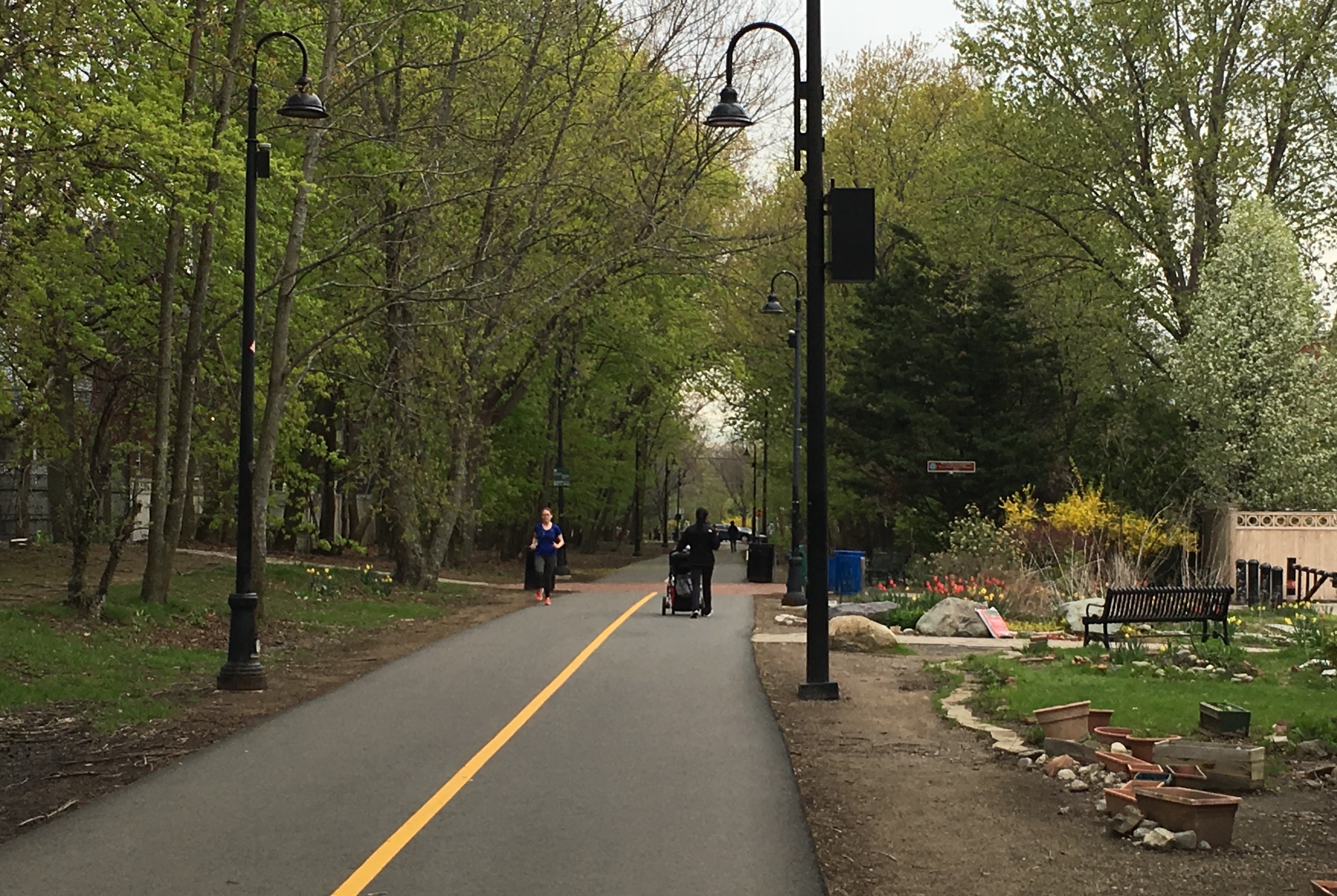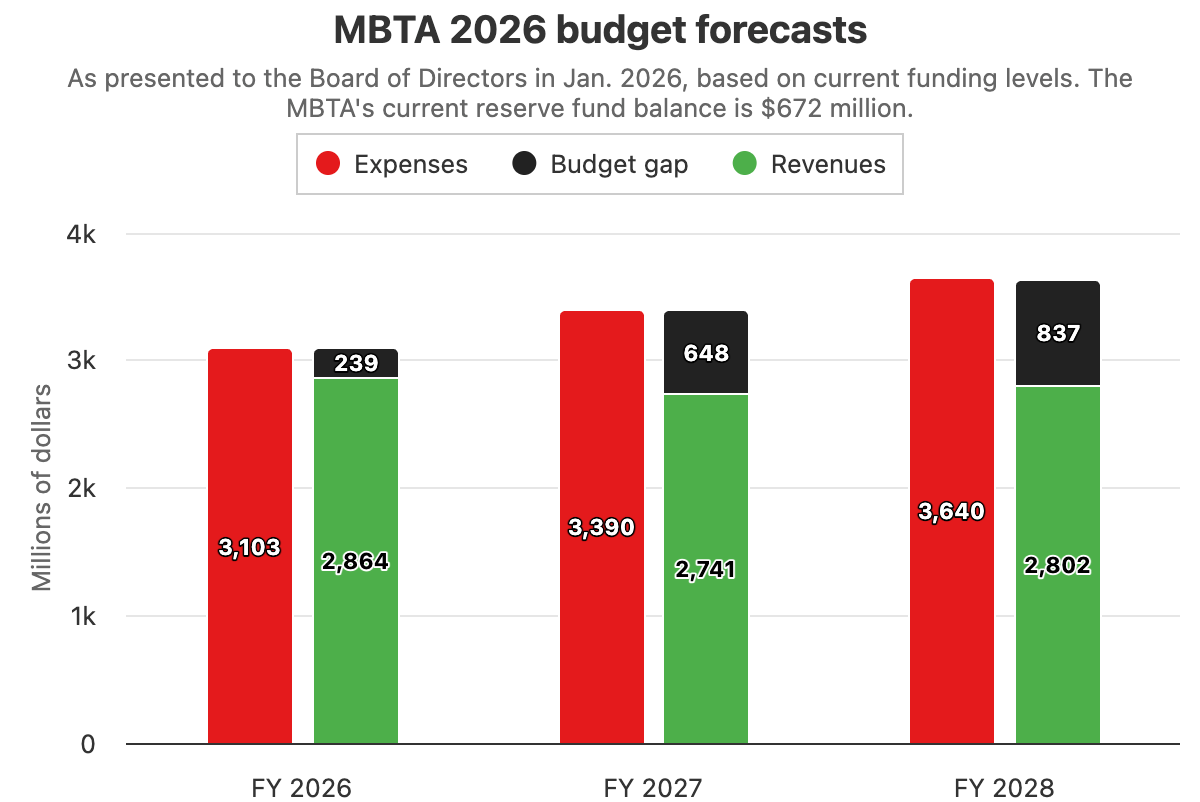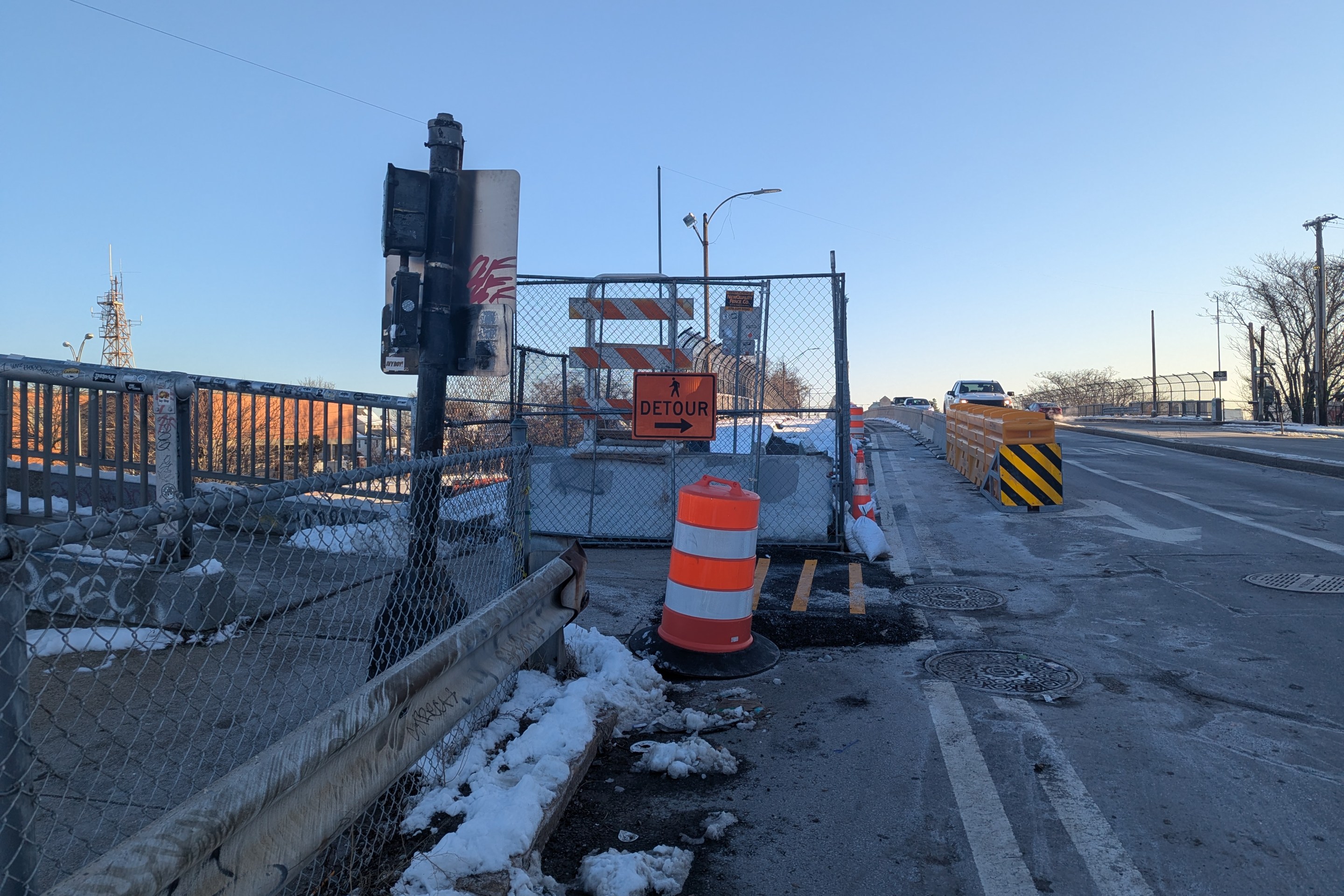From the Berkshires to Boston, construction crews are putting the finishing touches on a dozen new off-street biking and walking paths that are expected to open to traffic in 2022. There are so many projects in the works that we're splitting up this rundown into two articles: we'll be highlighting new trails coming to Central and Western Massachusetts in a separate article, linked below:
Here's a rundown of the new trails we can look forward to biking, wheeling, or walking along later this year:
Community Path extension, Somerville and Cambridge
One of the most eagerly-awaited trail projects to open in 2022 will open up an off-street path connection that will traverse the City of Somerville and connect the Minuteman Bikeway to the Charles River.
Somerville's Community Path Extension (pictured below) will still be used as a construction staging area for the Green Line Extension project for a few more months, but the new pathway is expected to open shortly after the new light rail line takes its first passengers later this year.
The new trail extends from the current terminus of the Somerville Community Path at Lowell Street, past the city's new high school, and over a high viaduct to the new Lechmere station in Cambridge, where an existing network of trails will connect the network to Paul Revere Park in Boston. Several other connecting trails are in the planning stages.
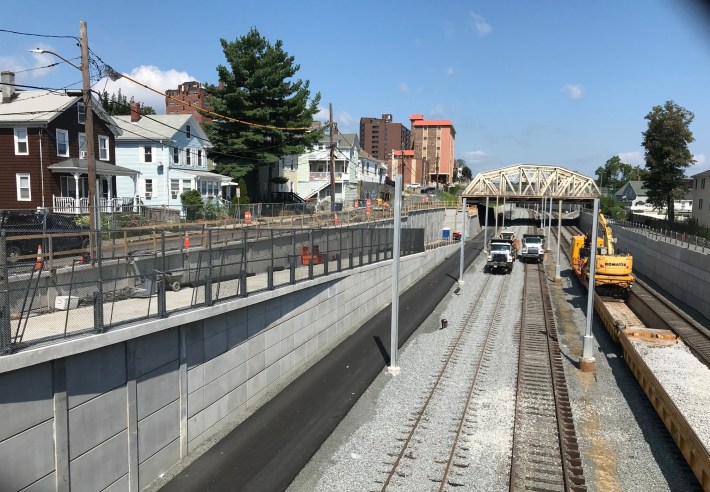
Bruce Freeman Rail Trail bridge over Route 2, Acton and Concord
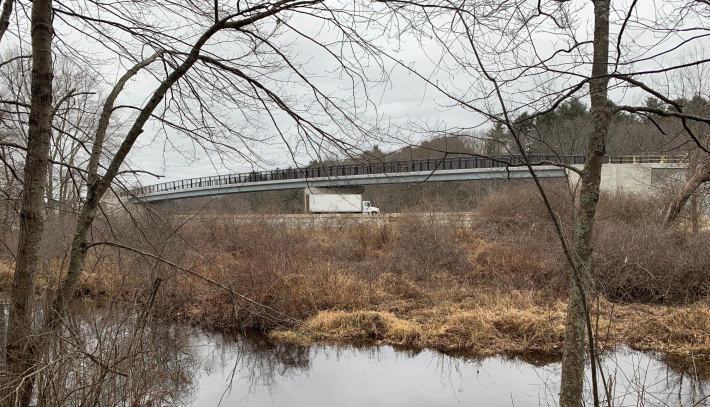
Route 2, a four-lane divided highway, has been a gap in the Bruce Freeman Rail Trail since its newest 2.5 mile segment opened in the Town of Concord in 2019.
Later this spring, though, a new bridge will eliminate that gap and create a continuous, 15-mile off-street path that runs from Lowell to Concord.
Two other significant connecting trail segments could also go under construction in 2022. The towns of Concord and Sudbury are getting ready to start construction on another 4-mile extension of the Bruce Freeman towards the south.
Meanwhile, an underground power line running along the Mass. Central Rail Trail corridor could go under construction this summer as well. When the utility work is complete, the Department of Conservation and Recreation will top it off with an 8-mile extension of the Mass. Central Rail Trail (MCRT) between the eastern part of Sudbury to the Assabet River Rail Trail in Hudson.
Groveland Community Trail and Bradford Rail Trail extension, Groveland and Haverhill
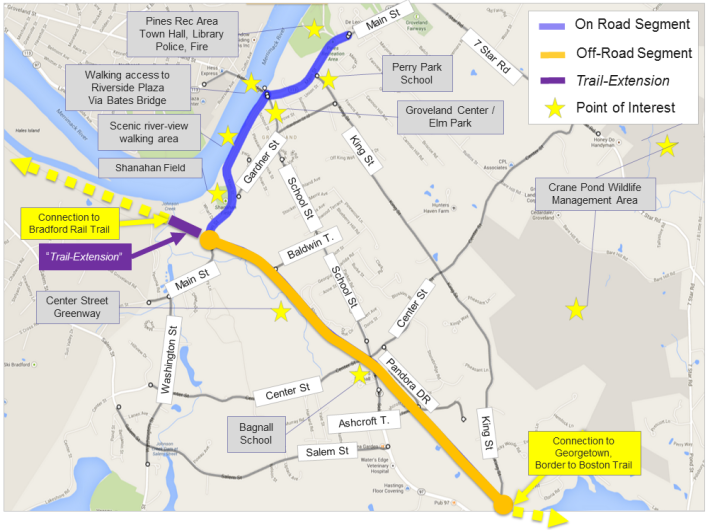
Two segments of rail-trail are expected to open in the Haverhill area this year: one is a short 1,000-foot eastward extension of the riverfront Bradford Rail Trail, which runs along the southern bank of the Merrimack River.
Long-range plans for the Bradford Rail Trail call for the pathway to be extended 2.3 miles further south along the riverfront, to the town of Groveland. There, the Groveland Community Trail, also expected to open later this year, will provide a 2-mile bike path from Main Street to King Street at the Georgetown town line. The southern end of the Groveland Community Trail will be less than one mile from a planned link in the Border to Boston trail.
Mattapoisett - Mattapoisett Rail Trail extension
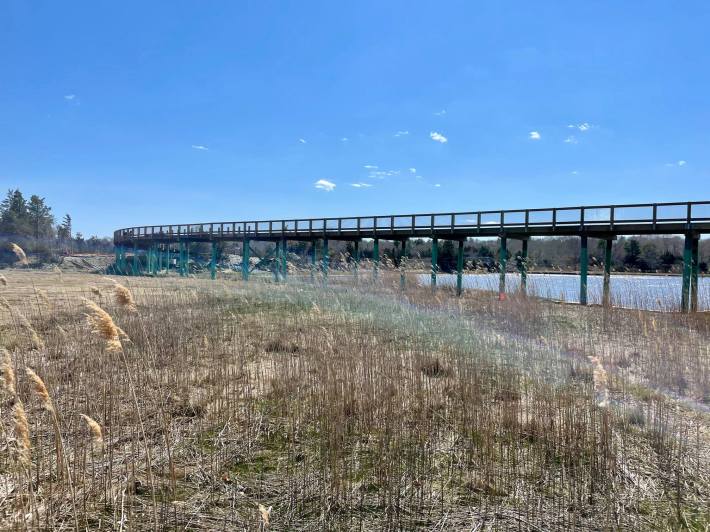
Mattaposett's new rail trail segment is relatively short, but it's going to be a stunner.
The new mile-long "Shining Tides Bikeway" will extend the existing Phoenix Rail Trail, which starts on the waterfront of New Bedford Harbor in the town of Fairhaven, along the Mattapoisett waterfront. The centerpiece will be a new winding viaduct over salt marshes and sand dunes on Goodspeed Island (pictured at right).
Other trail projects in the works will extend the pathway northeast into Marion and ultimately to the Cape Cod Canal as part of the South Coast Bikeway.
This path was supposed to open in 2021, but construction issues on the path's central bridge have delayed the project's official opening.
Wellfleet - Cape Cod Rail Trail extension
After some Wellfleet residents objected to an earlier plan to extend the Cape Cod Rail Trail to Route 6, the busy highway that divides the town's center, the Department of Conservation and Recreation (DCR) moved ahead with a shorter extension that will bring the trail to the state's Wellfleet Hollow Campground instead.
A "phase 2" project due to begin construction this fall will add wide sidewalks, traffic calming measures, and bike lanes to Route 6 through Wellfleet. Once that's finished and the state-owned highway is made safer for bike and pedestrian traffic, DCR still plans to extend the Cape Cod Rail Trail to Route 6.
